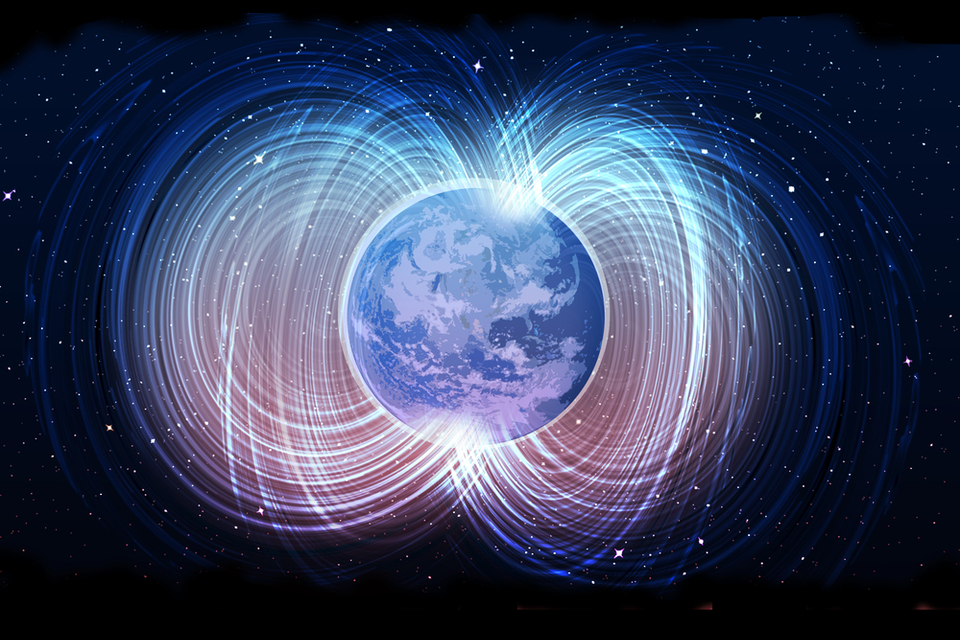On Wednesday, public alarm broke out due to the news that Earth’s magnetic poles could be about to flip.
Interest in the planet’s magnetic poles has suddenly risen following reports of an impending geomagnetic reversal. Experts said that many times over the past 20 million years, our planet’s poles have reversed. This means that every now and then, the north and south magnetic poles swap places.
According to Daniel Baker, director of the Laboratory for Atmospheric and Space Physics at the University of Colorado, Boulder, the planet’s weakening magnetic field could be a sign that the poles may soon flip. Evidence indicates that the Earth’s magnetic field has weakened by 15% in the last 200 years.
This is alarming news. The magnetic field is one of the only things protecting us from solar winds and other extraterrestrial threats. However, some experts say it’s not that big of a deal.
In a book written by Alana Mitchell, the author quoted Baker’s comments, writing:
“The dangers: devastating streams of particles from the sun, galactic cosmic rays, and enhanced ultraviolet B rays from a radiation-damaged ozone layer, to name just a few of the invisible forces that could harm or kill living creatures.”
Experts say that #Earth is 20,000 years overdue for a #GeomagneticReversal Click To TweetWhile Baker believes that a geomagnetic reversal would render many parts of our planet uninhabitable, NASA believes otherwise. In an article published by the U.S. space agency in 2011 titled “2012: Magnetic Pole Reversal Happens All The (Geologic) Time,” NASA explained that there has been no real indication that Earth’s magnetic field has disappeared completely in the past or has been the source of such catastrophe.
“A weaker field would certainly lead to a small increase in solar radiation on Earth – as well as a beautiful display of aurora at lower latitudes – but nothing deadly. Moreover, even with a weakened magnetic field, Earth’s thick atmosphere also offers protection against the sun’s incoming particles,” NASA said.
Earth’s Magnetic Poles and the Geomagnetic Reversal
Earth’s magnetic poles are at the north and south end of a powerful magnetic field. This protective barrier surrounds our planet. Interestingly, the field is powered by the gradual cooling of our planet’s liquid, iron-rich core.
According to researchers, 99 percent of the magnetic field remains within the planet’s core. However, one percent of it manages to escape into space and acts as another barrier that protects us from dangerous solar winds and radiation.
To date, geophysicists still don’t have any concrete explanation about why geomagnetic reversal or the flipping of magnetic poles happen. However, many of them agree that it has something to do with the planet’s metallic outer core.
The last complete reversal happened over 700,000 years ago. The event is called the Brunhes-Matuyama reversal after its discoverers, Bernard Brunhes and Motonori Matuyama. In the last 20 million years, it’s estimated that our planet’s magnetic field has flipped once every 200,000 to 300,000 thousand years. If that’s the case, we’re more than 20,000 years or so overdue for even a geomagnetic change.
While the Earth’s magnetic field tends to weaken by around 5% per decade, it doesn’t necessarily mean that a reversal will happen anytime soon. There’s no reason for panic as reversals don’t happen in a blink of an eye or overnight. According to the University of Leeds professor Phil Livermore, it takes about one thousand to five thousand years for a reversal to be completed.
Even if the magnetic field weakens, Livermore emphasized that the risks are low. Based on fossil record from the Brunhes-Matuyama reversal period, both animals and plants were fine. However, should solar weather bring highly energetic particles into our atmosphere, it could affect electrical infrastructures and power grids. This could potentially cause major blackouts in the surface of our planet. However, although it could significantly damage our global infrastructure, it will have no significant direct impact on the health of humans, plants and other living organisms.



















Comments (0)
Most Recent